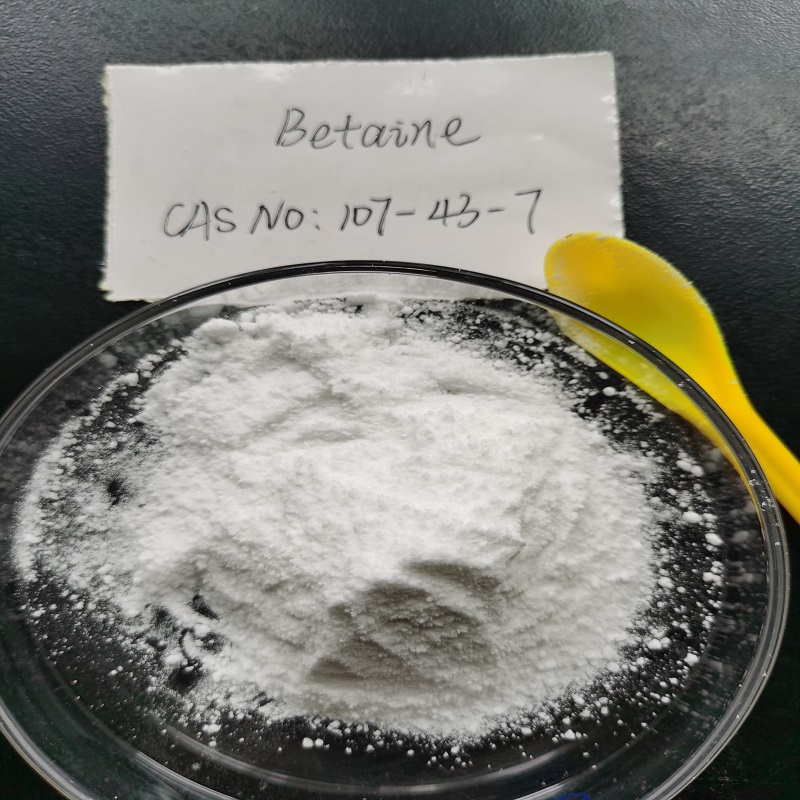One of the well-known applications of betaine in animal feed is saving feed costs by replacing choline chloride and methionine as methyl donor in poultry diets. Besides this application, betaine can be dosed on top for several applications in different animal species. In this article we explain what it entails.
Betaine serves as osmoregulator and can be used to reduce negative effects of heat stress and coccidiosis. Because betaine influences fat and protein deposition, it can also be used to improve carcass quality and reduce fatty livers. The three previous online review articles on AllAboutFeed.net elaborated on these topics with in-depth information for different animal species (layers, sows and dairy cows). In this article, we summarise these applications.
Methionine-choline replacement
Methyl groups are of vital importance in the metabolism of all animals, moreover, animals cannot synthesize methyl groups and thus need to receive them in their diets. The methyl groups are used in methylation reactions to remethylate methionine, and to formulate useful compounds such as carnitine, creatine, and phosphatidylcholine through the S-adenosyl methionine pathway. To generate methyl groups, choline can be oxidised to betaine within the mitochondria (Figure 1). Dietary requests of choline can be covered from choline present in (vegetable) raw materials and by the syntheses of phosphatidylcholine and choline once there is S-adenosyl methionine available. Regeneration of methionine occurs by betaine donating one of its three methyl groups to homocysteine, via the enzyme betaine-homocysteine methyltransferase. After donation of the methyl group, one molecule of dimethylglycine (DMG) remains, which is oxidised to glycine. Betaine supplementation has been shown to reduce homocysteine levels while resulting in modest increases of plasma serine and cysteine levels. This stimulation of betaine-dependent homocysteine re-methylation and the subsequent decrease in plasma homocysteine can be maintained as long as supplemental betaine is taken. In general, animal studies show that betaine can replace choline chloride with higher efficacy and can replace part of total dietary methionine, resulting in a cheaper diet, whilst maintaining performance.
Economic losses of heat stress
Increased energy expenditures towards relieving the body from heat stress can cause severe production impairments in livestock. The effects of heat stress in dairy cows for example cause economical losses of over € 400 per cow/year due to reduced milk yield. Laying hens show reduced performance and sows in heat stress reduce their feed intake, give birth to smaller litters and have an increased weaning to oestrus interval. Betaine, being a dipolar zwitterion and highly soluble in water can function as an osmoregulator. It increases the water retention capacity of the gut and muscle tissue by holding water against the concentration gradient. And it improves the ionic pump function of intestinal cells. This reduces energy expenditure, which can then be used for performance. Table 1 shows a summary of heat stress trials and the benefits of betaine is shown.
Overall trend with betaine use during heat stress is higher feed intakes, improved health and therefore better performance of the animals.
Slaughter characteristics
Betaine is a product well known to improve carcass characteristics. As a methyl donor, it reduces the amount of methionine/cysteine for deamination and as such allows higher protein synthesis. As a strong methyl donor, betaine also increases the synthesis of carnitine. Carnitine is involved in the transport of fatty acids into mitochondria for oxidation, allowing liver and carcass lipid contents to reduce. Last but not least, via osmoregulation, betaine allows a good water retention in the carcass. Table 3 summarises a large number of trials showing very consistent responses to dietary betaine.
Conclusion
Betaine has different applications for different animal species. Not only feed cost savings, but also performance enhancement can be obtained by including betaine in diet formulation used today. Some of the applications are not well known or widely used. Nevertheless, they show a contribution to increased performance of (high producing) animals with modern genetics exposed to day to day challenges such as heat stress, fatty livers and coccidiosis.
Post time: Oct-27-2021






